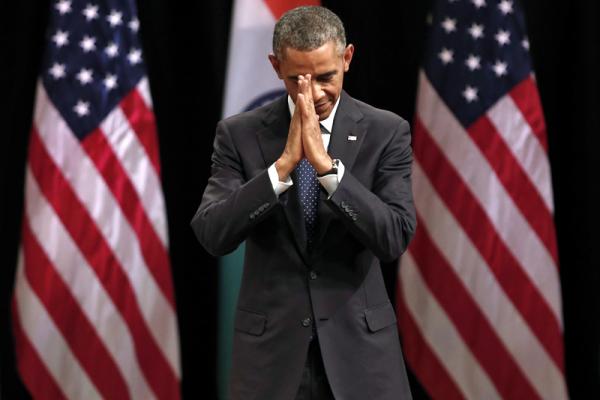U.S. President Barack Obama weighed in on one of India’s most sensitive topics as he wound up a visit on Jan 27, making a plea for freedom of religion to be upheld in a country with a history of strife between Hindus and minorities.
Hours before boarding a flight to Saudi Arabia, Obama warned India not to stray from its constitutional commitment to allow people to freely “profess, practice, and propagate” religion.
“India will succeed so long as it is not splintered along the lines of religious faith, as long as it is not splintered along any lines, and it is unified as one nation,” he said in a townhall address to mostly young Indians.
Obama’s speech, after three days in New Delhi aimed at cementing a strategic partnership, was widely interpreted as a message to Prime Minister Narendra Modi and his Hindu nationalist Bharatiya Janata Party (BJP), whose rise to power emboldened activists to declare India a nation of Hindus.
Read the Full Article

